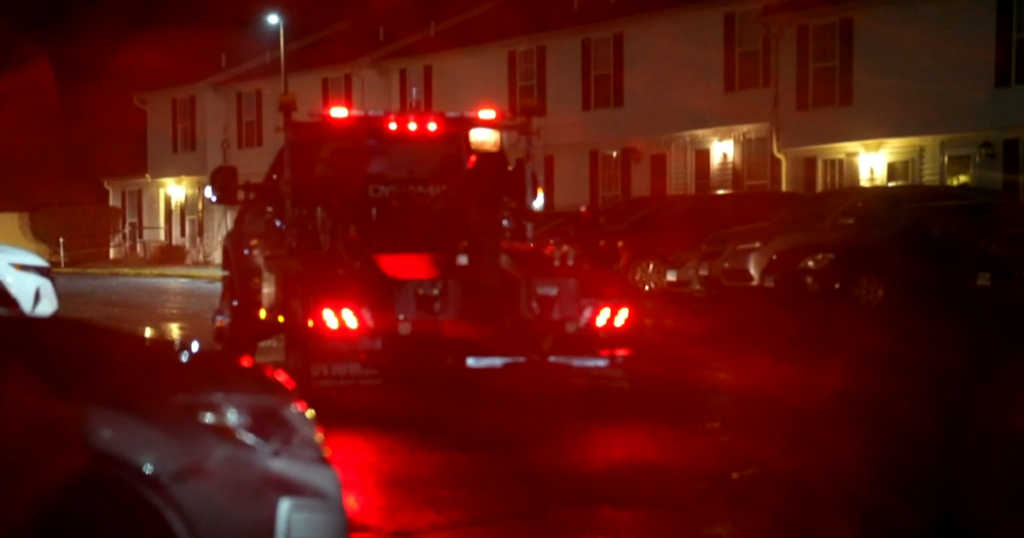In Waterbury, Connecticut, a controversial law is stirring debates around the practices of tow truck companies, particularly one known as MyHoopty.com LLC. This law allows these companies to sell towed vehicles after just 15 days, prompting criticism from residents who argue that it disproportionately affects vulnerable communities. Paul Boudreau and Greta Blau, local residents who faced the loss of their vehicle, highlight the struggles of working-class neighborhoods amid what they call predatory towing practices.
| Article Subheadings |
|---|
| 1) Overview of the Controversial Law |
| 2) Residents Share Personal Experiences |
| 3) The Impact on Working-Class Communities |
| 4) Company Response and Practices |
| 5) Legal and Community Reactions |
Overview of the Controversial Law
The law in question permits tow truck companies in Connecticut to auction off vehicles that have been towed after just 15 days. This regulation was designed to streamline the towing process and provide quick resolutions for vehicle recovery. However, it has faced backlash from various community members who argue that it allows predatory practices to thrive. Critics point out that they are particularly concerned about how this law is implemented, specifically suggesting that it disproportionately impacts low-income neighborhoods.
Residents Share Personal Experiences
In 2021, local residents Paul Boudreau and Greta Blau had their car towed, citing expired registration as the reason. However, they argued that due to delays caused by the DMV reopening, they could not register their vehicle promptly. Boudreau expressed his frustration, saying,
“And I lost the car… People can’t come up with $300 to $600 to $800 in an evening.”
This personal experience aligns with what many local residents are reporting regarding the tactics being employed by tow companies.
The Impact on Working-Class Communities
The couple highlighted that their apartment complex has been a prominent target for tow truck companies, especially MyHoopty.com LLC. According to Blau, the company towed around 1,000 cars in just two years from their complex. This excessive towing has led Boudreau and Blau to advocate for a neighborhood watch, aimed at monitoring the activities of this particular company. They suggest that MyHoopty specifically targets working-class neighborhoods where residents may be less able to afford the costs associated with recovering their vehicles.
Company Response and Practices
When approached for comments, Michael Festa, owner of MyHoopty.com, defended his company’s actions. He stated,
“I think it’s right and just to enforce the rules of the (apartment) complex.”
He claimed that the rules in place ensure that all residents who have a right to park can do so close to their properties. However, the scrutiny from local residents has raised questions about the ethics of towing practices in heavily populated areas.
Legal and Community Reactions
The phenomenon has bubbled up into local government discussions, with some residents pushing for legislative reforms. Community members express increasing frustration at what they describe as exploitative behaviors from towing companies. Public forums and town hall meetings have become venues where residents voice their grievances, and some community leaders are considering proposals to revise the laws surrounding vehicle towing and impounding. The recent attention on this issue reflects a broader concern around how local regulations can affect vulnerable populations.
| No. | Key Points |
|---|---|
| 1 | A controversial law in Connecticut allows vehicles to be sold after 15 days of towing. |
| 2 | Residents accuse tow companies of targeting low-income neighborhoods for profit. |
| 3 | Personal accounts indicate widespread frustration and financial struggle tied to vehicle towing. |
| 4 | MyHoopty.com LLC, a primary offender, defends its towing practices as lawful and just. |
| 5 | Community leaders are considering proposals to revise towing laws amid growing public outcry. |
Summary
The issues surrounding vehicle towing in Connecticut present a complex intersection of law, ethics, and community well-being. As local residents like Paul Boudreau and Greta Blau push back against predatory towing practices, the larger conversation emphasizes the need for a reassessment of existing regulations. The testimonies of affected residents lay bare the struggles faced by working-class communities, presenting a vital opportunity for policymakers to implement significant changes.
Frequently Asked Questions
Question: What is the primary issue with the Connecticut towing law?
The law allows tow companies to auction off vehicles after just 15 days, which many residents argue is predatory, particularly affecting low-income families.
Question: How have residents responded to towing practices in their communities?
Residents have organized neighborhood watches to monitor towing activities and have voiced their concerns at public forums, seeking changes to local laws.
Question: What defenses have towing companies provided regarding their practices?
Towing companies like MyHoopty.com LLC argue that they are simply enforcing parking rules mandated by apartment complexes, which they believe is their legal obligation.


